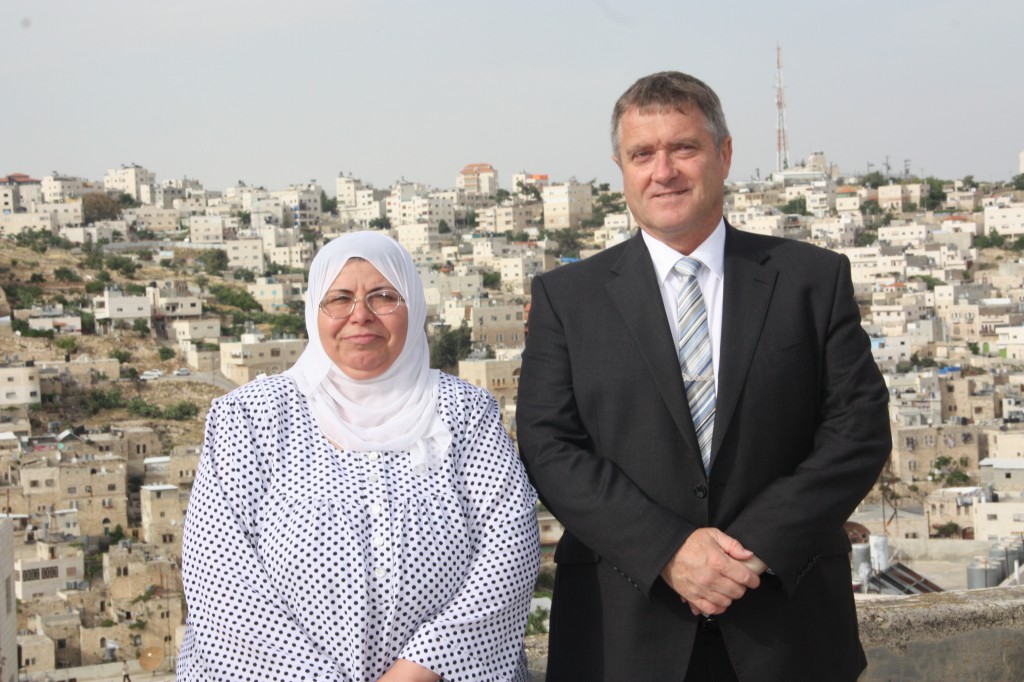Visiting Hebron for the first time reminded me of my childhood in the Scottish city of Glasgow. The narrow alleyways hung with washing; kids in the street playing football; conversations across garden walls. A city in which family is everything and privacy is a rare commodity.
But the similarities end when you enter ‘H1’. This area of Hebron has rightly earned its nickname of ‘Ghost Town’. Stepping through the checkpoint from the bustling market into an empty Shuhada Street takes you into another world. The once bustling fruit market lies empty. Over 1,800 shops are now closed and 1,000 homes abandoned. The Israeli closures and the presence of illegal settlements has divided a once vibrant old town and made life difficult for those who have chosen to remain.
One such family is led by Mrs Abu Heikel in Tel Rumeida. An exceptionally brave woman whose steadfastness reminded me of a typical Scottish grandmother. But these qualities have been tested by the experience of the last few years. The presence of violent settlers nearby has put her house under siege. Unable to sit on her balcony for fear of attack with stones, she is trapped in her home and only able to leave under cover of darkness. We talked about her fears for the safety of her family and the feeling that the Israeli settlers were immune from the law.
Since my arrival in the OPTs as Consul General four months ago, I have visited Palestinian communities all over the West Bank and have seen for myself the impact of an increasing number of violent settler attacks. There has been welcome widespread condemnation from Israeli politicians. But there is still a lack of convictions for those who commit acts of violence. This spreads fear amongst Palestinian communities, destroys livelihoods and displaces people from their land. This takes us further from peace and an end to this conflict.
As our Foreign Minister William Hague said this year at the launch of our human rights report, the UK has a “moral obligation to prevent grave human rights abuses”. This commitment has been turned into action by our support for NGOs to provide legal support for Palestinian victims of violence and direct assistance to communities vulnerable to settler attacks in the South Hebron Hills. And we have been encouraging the Government of Israel to do all it can to bring those responsible for these hateful crimes to justice.
This ongoing commitment lies at the heart of our vision for a future Palestinian state, prosperous and independent, living in peace alongside Israel. This is why we will continue to work for justice and respect for human rights in the West Bank and Gaza.
For me, this vision will be complete when I return to Hebron and meet Mrs Abu Heikel, and thousands like her, living free from fear.

